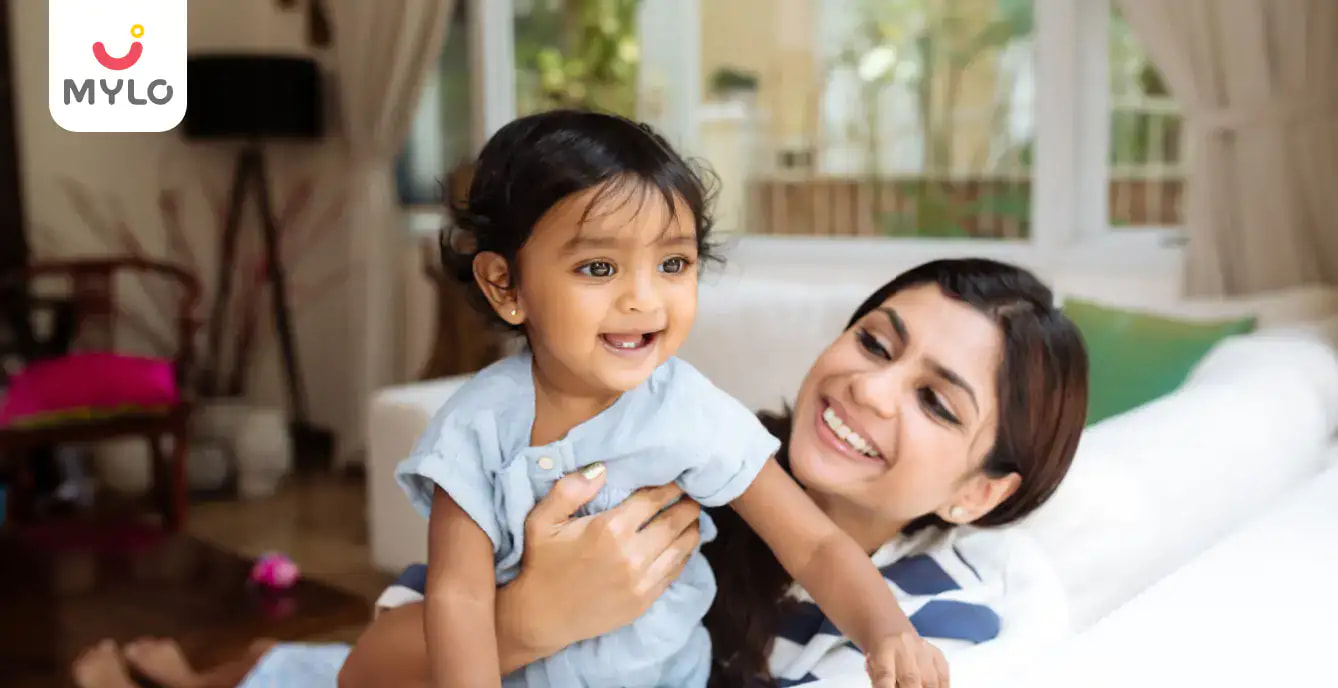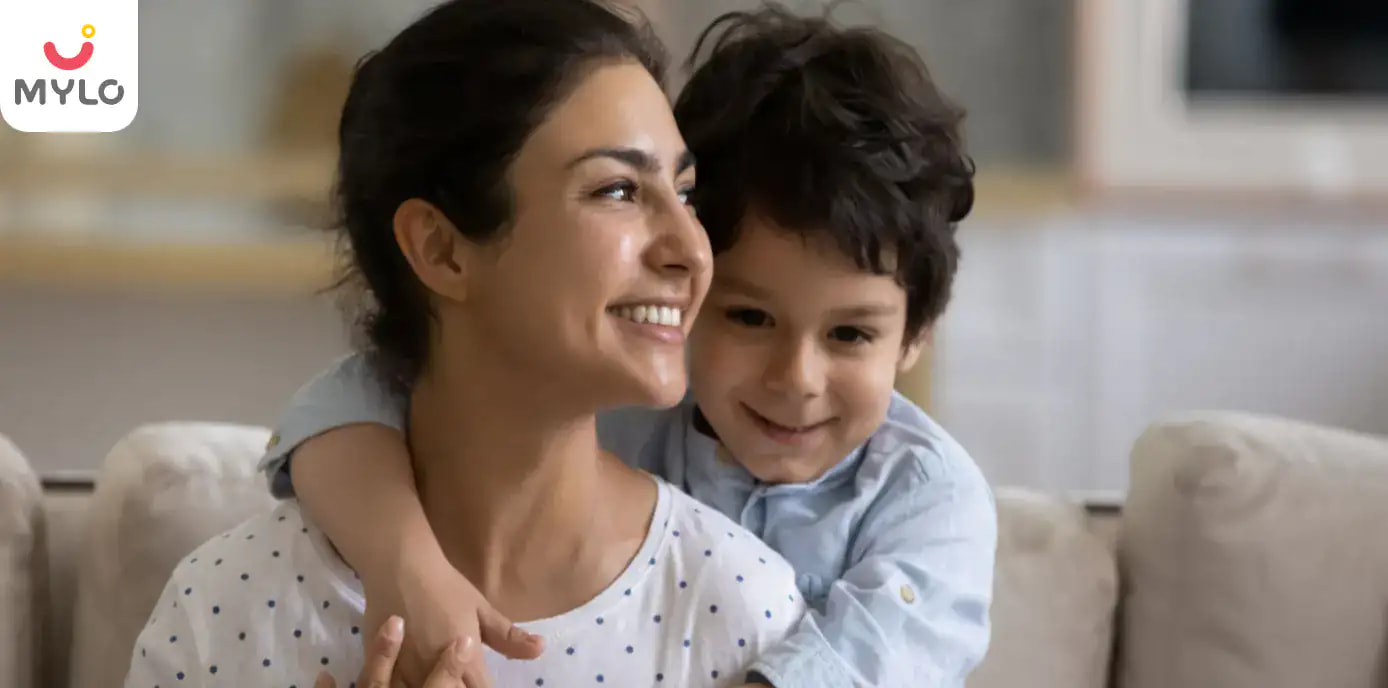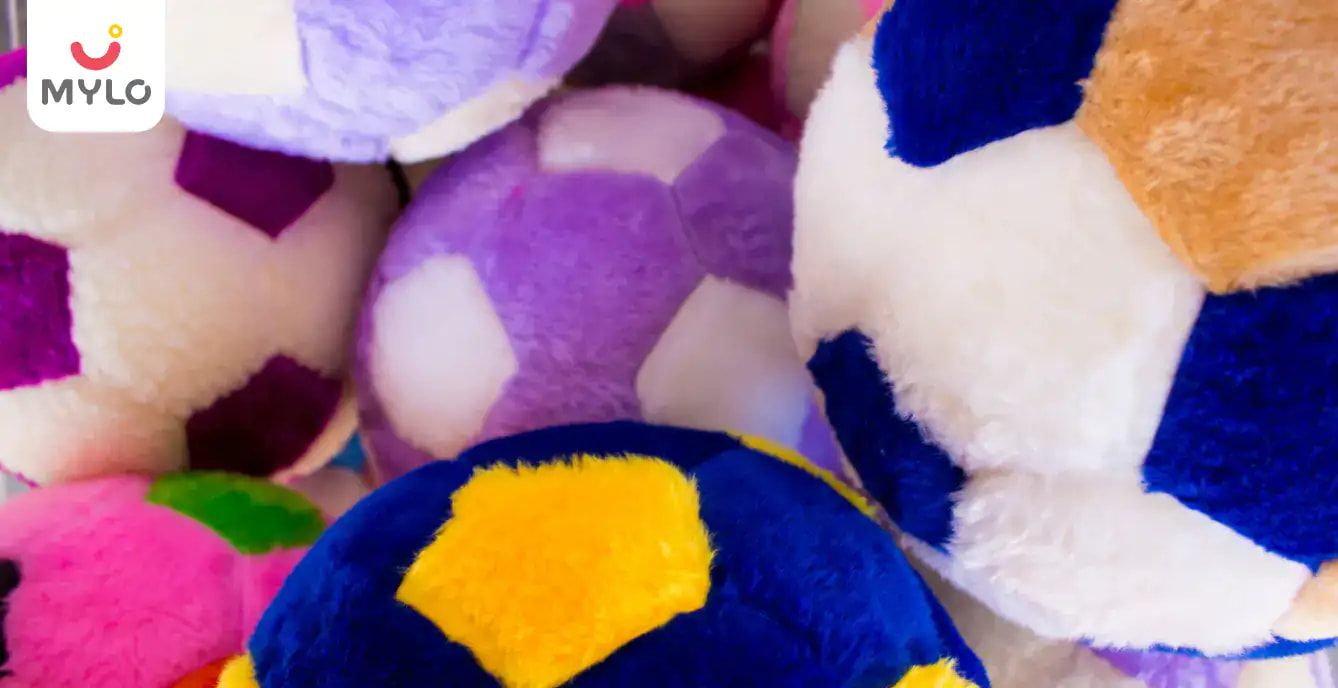Home

Parenting Tips

How to Raise a Happy Child?
In this Article

Parenting Tips
How to Raise a Happy Child?
Updated on 3 November 2023
You've made sure your child is healthy, loved and has plenty of activities to fill her day. But do you sometimes wonder if she's happy?
The good news is you don't have to be an expert in child psychology to impart the inner strength and wisdom it takes to cope with life's ups and downs. With patience and flexibility, any parent can lay the groundwork for a lifetime of happiness.
How will I know if my child is happy?
During her first six months of life, your baby will become a master at showing you when something makes her happy or upset.Her face will light up in a smile when you enter the room, and she'll cry when someone takes her favourite toy away. She'll switch from smiling to crying and back again so quickly that you often won’t be able to keep up with her mood changes!Try not to worry if it seems like your baby spends more time crying or whining than giggling. It's because babies experience distress earlier than happiness.
Crying and unhappy facial expressions are powerful ways for your baby to communicate with you. They alert you when your baby's nappy is dirty, when she's hungry, in pain, uncomfortable or colicky. As your child grows up, she'll be able to communicate her feelings more easily with words and body language.
How can I make sure my baby is having fun?
While a colourful mobile for her cot and a baby gym may bring a smile to her face, what makes your baby happiest is much simpler: you. Connect with your baby through games and play. If you’re having fun, she’s likely to be having a good time too!
Play is also a great way for your child to develop skills that will be essential for her future happiness.Play doesn't mean organised sports, music classes and other structured activities. Play is when children invent, create, and daydream. As she gets older, unstructured play will help her work out what she wants to be when she grows up. Building houses with blocks, experimenting in her toy kitchen and banging on a pan with a spoon could all indicate future career paths (or rule them out!).
How can I help my child express her feelings?
For young babies, the only way they know how to express their feelings is through crying. But as your child gets older, you can encourage her to name her feelings and express them to you with words. Young children will pick up very quickly on emotional words such
as "happy" or "angry". You’ll probably hear an "ahaa" when she likes something or a "na" when she doesn’t like something. Even before your child can talk, you can show different emotional expressions and ask her which one matches the way she is feeling. You can use your facial expressions or show her pictures of faces or smileys and ask her which one is feeling the same way she is. A happy child smiles, plays, exhibits curiosity, shows interest in other children, and doesn't need constant stimulation. But, bear in mind that it's normal for your child to become oversensitive, clingy or nervous at times. It may be because her routine has changed or she's been disappointed by something. This will happen more as she gets older. When your child sulks in a corner during a birthday party or cries because she hasn't been invited to one, don't dismiss those feelings. She needs to know that it's OK to be unhappy sometimes, it's simply part of life.
How can I protect my child when she's unhappy?
Parents try to make it better for their children all the time, to make them happy all the time. That's not realistic. Children need to learn to tolerate some distress, failure and some unhappiness. Hard as it may seem, let them struggle a bit and figure out things on their own. This helps them to learn how to cope.
In your baby’s first year, she’s learning so many things, including how to:
- sit up
- crawl
- grasp objects
- walk
- talk
These skills take time to develop. It's important you let her make mistakes along the way, while encouraging her to keep trying. She'll feel everything from frustration and even anger at first, to a feeling of achievement and confidence when she gets it "right".
Allowing your child to feel all these emotions will help her build an inner strength that leads to happiness as she gets older. Don’t make everything too easy for her. Remember, over-indulged children, whether showered with toys or shielded from emotional discomfort – are more likely to grow into teenagers who are bored, cynical, and joyless.
You may also like:
How can I help my child grow and develop well?
The happiest people are often those who have mastered a skill. It takes time and effort to become really good at something. So when your child successfully identifies a colour, or writes her name for the first time, or recites a nursery rhyme give her lots of praise. She can really enjoy the success because she's worked hard to achieve it. She'll also take pride in others making a fuss over her achievement.
Perhaps most importantly, she'll learn that she has some control over her life. If she puts her mind to it, she can be good at anything. This will continue to be an important factor in achieving happiness when she's an adult.
Does my child's health have an effect on her happiness?
Lots of sleep, exercise and a healthy diet are important to your growing child. Giving your little one plenty of space to release her energy will help put her in a good mood. Let her kick her legs in the air, crawl towards a favourite toy, or run around at the park. You could also try these fun ways to keep your little one occupied indoors. Pay attention to your child's need for structure, too. While some babies and toddlers are very easygoing, most thrive and feel more settled with a set routine.
Can my baby's mood be affected by what she eats?
Food allergies and sensitivities can play a role in your child's behaviour and mood. If you're nursing, you may find that your baby becomes fussy after you eat certain foods. Talk to your child's doctor if you suspect that your baby's formula or diet is linked to signs of distress. You might also want to pay attention to any connection between your baby's mood and particular foods. Some parents find that while sugar can give their child an energy boost, it can also lead to fussiness and tantrums. Growing babies and children need lots of nutrients not empty calories. Yet some foods commonly offered to babies are mostly junk food – high in calories, sugar, or salt, and low in nutrients. See the worst food and drink offenders for babies between six months and a year, and try our no-fuss, healthy swap suggestions.
Does my mood influence my child?
Yes. For better or worse, children pick up on their parents' moods. Even young babies imitate their parents' emotional style. When you smile, your baby smiles and her brain becomes "wired" for smiling.It’s impossible to be positive and happy all the time when you are caring for a baby or young family. And, it's normal to feel tired and overwhelmed. But if you find yourself constantly stressed or depressed, it's important to seek help from your family or your doctor.There will be many times when you feel tired and overwhelmed. However, if you find yourself constantly stressed or depressed, it’s important to seek help. Talk to your doctor. For a happy and healthy relationship with your baby, it is important she feels comfortable to come to you. As she gets older, she’ll want to share her problems with you and it’ll help when she sees you have time for her concerns.
How can I teach my child to care for others?
Even as early as 10 months old, your baby can be taught how satisfying it is to help others. If you give her a bite of banana, let her do the same by feeding you a piece. Show her how happy her gesture makes you feel. If you brush her hair, give her a chance to brush yours. These small moments can encourage her to share and to care for others. As your baby grows into a toddler, let her try her hand at simple chores. Putting her toys back in the toy box or her dirty clothes in the laundry basket, can help her feel that she’s making a valid contribution. How your child treats and behaves with others will also come from what she sees at home. Babies are usually impressionable and also great mimics. If she sees rude, disrespectful or agressive behaviour by family members she may pick that up too.
Disagreements are natural in all families, joint or nuclear. It’s better to sort out differences when your little one isn’t around. Keep your baby away from any heated discussions, aggression, or incidents of domestic violence as this may have a negative impact on her.
In general, children need a happy environment with a loving family to thrive.
You may like: When will my toddler learn how to scribble or draw? (mylofamily.com)
References
-
Jayne A. Fulkerson et al. (2006). Adolescent and Parent Views of Family Meals. https://www.sciencedirect.com/science/article/abs/pii/S0002822306000071
-
Conversano C, Rotondo A, Lensi E, Della Vista O, Arpone F, Reda MA. (2010). Optimism and its impact on mental and physical well-being. NCBI



Written by
Charu Pratap
Charu has been a seasoned corporate professional with over a decade of experience in Human Resource Management. She has managed the HR function for start-ups as well as established companies. But aside from her corporate career she was always fond of doing things with a creative streak. She enjoys gardening and writing and is an experienced content expert and linguist. Her own experiences with motherhood and raising a baby made her realize the importance of reliable and fact-based parenting information. She was engaged in creating content for publishing houses, research scholars, corporates as well as for her own blog.
Read MoreGet baby's diet chart, and growth tips

Related Articles
Related Topics
RECENTLY PUBLISHED ARTICLES
our most recent articles

Diet & Nutrition
গর্ভাবস্থায় আলুবোখরা: উপকারিতা ও ঝুঁকি | Prunes During Pregnancy: Benefits & Risks in Bengali

Diet & Nutrition
গর্ভাবস্থায় হিং | ঝুঁকি, সুবিধা এবং অন্যান্য চিকিৎসা | Hing During Pregnancy | Risks, Benefits & Other Treatments in Bengali

Women Specific Issues
স্তনের উপর সাদা দাগ: লক্ষণ, কারণ এবং চিকিৎসা | White Spots on Nipple: Causes, Symptoms, and Treatments in Bengali

Diet & Nutrition
গর্ভাবস্থায় পোহা: উপকারিতা, ধরণ এবং রেসিপি | Poha During Pregnancy: Benefits, Types & Recipes in Bengali

Diet & Nutrition
গর্ভাবস্থায় মাছ: উপকারিতা এবং ঝুঁকি | Fish In Pregnancy: Benefits and Risks in Bengali

Diet & Nutrition
গর্ভাবস্থায় রেড ওয়াইন: পার্শ্ব প্রতিক্রিয়া এবং নির্দেশিকা | Red Wine During Pregnancy: Side Effects & Guidelines in Bengali
- ইনার থাই চ্যাফিং: কারণ, উপসর্গ এবং চিকিৎসা | Inner Thigh Chafing: Causes, Symptoms & Treatment in Bengali
- গর্ভাবস্থায় ব্রাউন রাইস: উপকারিতা ও সতর্কতা | Brown Rice During Pregnancy: Benefits & Precautions in Bengali
- Velamentous Cord Insertion - Precautions, Results & Safety
- Unlock the Secret to Flawless Skin: 7 Must-Have Qualities in a Face Serum
- Unlock the Secret to Radiant Skin: How Vitamin C Serum Can Transform Your Complexion
- Gender No Bar: 10 Reasons Why Everyone Needs a Body Lotion
- Unlock the Secret to Radiant Skin How to Choose the Perfect Body Lotion for Your Skin Type
- Top 10 Reasons to Apply a Body Lotion After Every Bath
- Communication in Toddlers: Milestones & Activities
- How to Improve Vocabulary for Toddlers?
- A Comprehensive Guide to Understanding Placenta Accreta
- Vulvovaginitis in Toddlers Causes, Symptoms and Treatment
- A Comprehensive Guide to Understanding Cerebral Palsy in Children
- Bitter Taste in Mouth During Pregnancy: Understanding the Causes and Remedies


AWARDS AND RECOGNITION

Mylo wins Forbes D2C Disruptor award

Mylo wins The Economic Times Promising Brands 2022
AS SEEN IN

- Mylo Care: Effective and science-backed personal care and wellness solutions for a joyful you.
- Mylo Baby: Science-backed, gentle and effective personal care & hygiene range for your little one.
- Mylo Community: Trusted and empathetic community of 10mn+ parents and experts.
Product Categories
baby carrier | baby soap | baby wipes | stretch marks cream | baby cream | baby shampoo | baby massage oil | baby hair oil | stretch marks oil | baby body wash | baby powder | baby lotion | diaper rash cream | newborn diapers | teether | baby kajal | baby diapers | cloth diapers |







